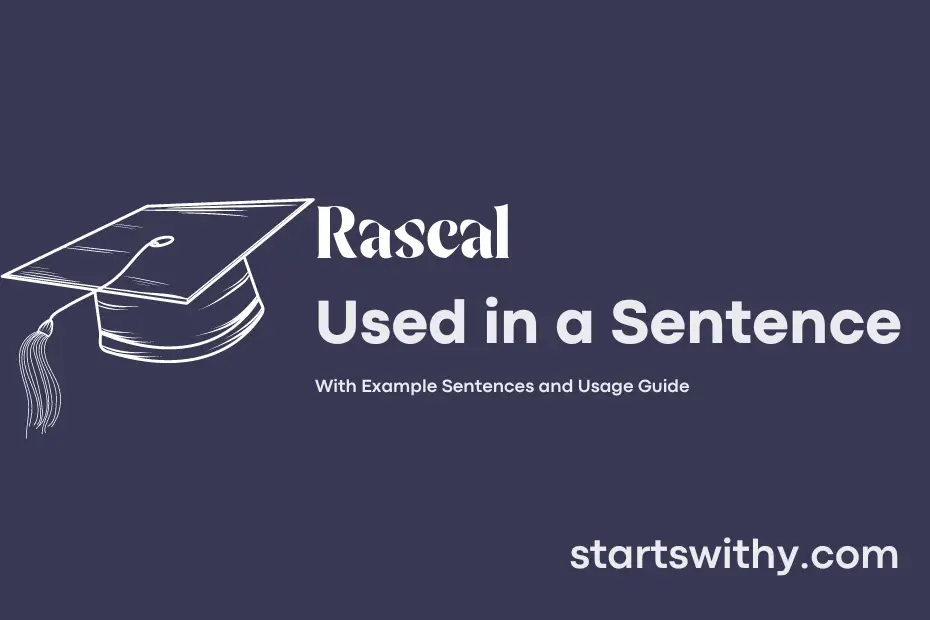Ever wondered how to accurately use the word “rascal” in a sentence? Let’s explore the meaning and proper usage of this mischievous term.
A rascal is often described as a playful or mischievous person, who may enjoy pulling pranks or causing trouble. It can also be used to affectionately refer to someone who is known for their lively and cheeky behavior.
7 Examples Of Rascal Used In a Sentence For Kids
- That rascal squirrel stole my snack!
- The rascal puppy chewed on my shoe.
- Look at that silly rascal monkey jumping around.
- The naughty rascal crow tried to steal my lunch.
- Be careful, that cheeky rascal cat might scratch you.
- Our class pet is a mischievous rascal bunny.
- Don’t be a little rascal and share your toys with friends.
14 Sentences with Rascal Examples
- I can’t believe that rascal stole my notes right before the exam.
- Have you seen the new batchmate? He’s a real rascal always playing pranks on everyone.
- I need to watch out for that rascal in class who keeps copying my assignments.
- Our professor caught the rascal who was cheating during the online exam.
- Don’t be a rascal and try to sneak into the library without your student ID.
- That rascal convinced me to join the college festival committee, and now I’m swamped with work.
- The group project was a disaster because of that rascal who didn’t do their part.
- I’m tired of dealing with that rascal who keeps borrowing my things without asking.
- I overheard the rascal making fun of our professor during the lecture.
- I can’t believe that rascal managed to skip all the boring lectures and still pass the exam.
- The cafeteria is always crowded with rascals trying to cut in line for food.
- I saw that rascal cheating on the test, but I didn’t know what to do.
- The club president is such a rascal for making us stay late for meetings.
- I have to avoid that rascal who always tries to start arguments during class discussions.
How To Use Rascal in Sentences?
Rascal is a versatile word that can be used in various contexts. When referring to someone, you can say, “My younger brother is a real rascal; he’s always getting into mischief.” In this sentence, rascal is used to describe someone mischievous or playful.
Alternatively, rascal can also be used to describe objects or things. For example, “I can’t find my rascal of a phone anywhere; it’s always disappearing on me!” In this case, rascal is used to express frustration or annoyance towards an object.
To use rascal correctly, remember that it is a noun and should be accompanied by appropriate verbs and adjectives to give it context. Practice using rascal in your everyday conversations to become more comfortable with incorporating it into your vocabulary.
Remember, the word rascal can have both positive and negative connotations, so make sure the context in which you use it aligns with the meaning you intend to convey. With practice, you will become more confident in using rascal effectively in your sentences.
Conclusion
In conclusion, a rascal is someone who behaves badly or mischievously, often in a playful or amusing way. The term is often used to describe a person, particularly a child, who is cheeky, mischievous, or up to no good. For example:
1. The young rascal snuck past the teacher and hid his friend’s backpack.
2. Despite his mischievous behavior, the little rascal had a charming smile that could melt anyone’s heart.
3. The neighborhood rascal was known for playing pranks on unsuspecting passersby.
Overall, a rascal is typically seen as a lovable troublemaker, whose antics may be exasperating at times but ultimately endearing. This term is often used affectionately to describe someone with a mischievous streak.



